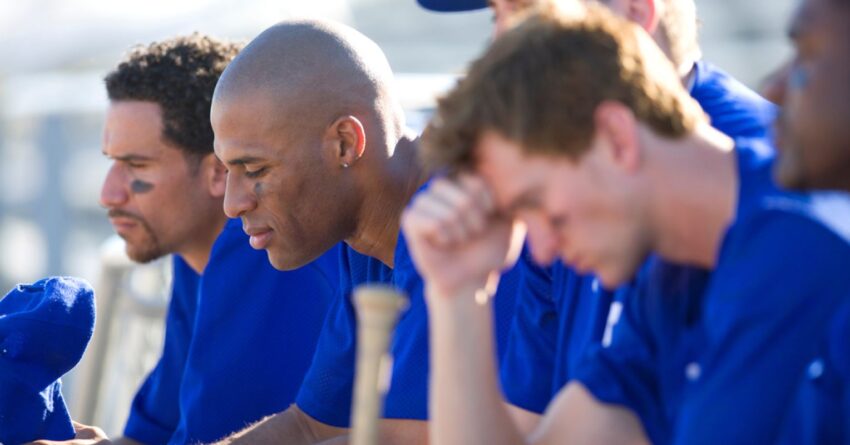One of the most brutal spots in sport is earning a silver medal at a competition that comes just once every four years—an Olympics or Paralympics, say, or a World Cup. It’s not the silver itself that disappoints; it’s leaving on a loss with all the ambiguities that black-and-white results and even broken-down game stats obscure.
It’s the sucker punch the officials didn’t call, because they’re human beings and they can’t see all directions, or because they’re human beings who prefer to see things from a particular direction. And it’s all kinds of other calls that were missed or looked away from.
Whether we perceive those calls as erroneous or on point depends on our own angle of vision and our own positionality, and it’s important to remember that our nervous systems don’t distinguish between perception and reality: What what we perceive is what we feel in our body, and what we feel in our body shapes our response.
After a high-stakes loss, the teams I’ve seen get better—and put themselves in a position to compete at the top of their game again—tend to offer each other some of the following, maybe not in this order or maybe not using these words but generally. Here are a number of the practices I’ve observed in teams and athletes that lead others forward to excellence.
- They make space for each other’s feelings. They’re not ashamed by someone’s sadness. They’re not scared by each other’s sadness. Which is not nothing: Sadness is vulnerable. When someone is taking time to be sad, they can’t fight or flee, and if they totally collapse, they’re vulnerable to threats. Making space for teammates’ sadness—and keeping them safe while they express their sadness—can be a team’s superpower.
- They examine their own perceptions and take steps to remove obstacles from their perceptions. Each athlete and each support staff member acknowledges that they may have clouded perceptions they weren’t even aware of and had adapted to, and they commit to trying to clear the clouds, as best they can, even when painful.
- They accept that there are things they can’t control. We are not the masters of all we do. Athletes don’t get to choose the venue, location, time zone, food, housing, schedule or whatever else is going on in the world when they compete. They don’t get to choose the officials, they don’t (always or even often) get to choose their support staff or their teammates, and they certainly don’t get to choose who they will compete against. They continue to develop their capacities for self-examination and clear perception of what they can control.
- They release excessive attachment to their own assumptions. This includes the assumption that a certain outcome—a gold medal, say—will contribute to everlasting happiness or eternal security and freedom from anxiety.
- Again, again, so important it’s worth saying twice: They bring their attention back to what they can control. They accept that others—their team’s internet trolls or haters; arrogant opponents; people who respond with shame toward athletes’ own humanity—are responding to their own perceptions, which are not reality but which their nervous systems do not differentiate from reality, and that they will never be the masters of others’ perceptions.
This is far from a complete list. I share this work in progress it in hopes that maybe others will edit or add to what’s here or create their own to share.
May we all be well and prepared for a fair and joyful competition in Los Angeles 2028.
